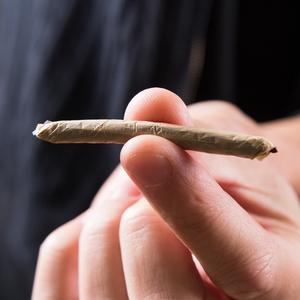A young man who received a lung transplant four weeks ago following a terrible case of pneumonia that caused his lungs to collapse has died. He is making national headlines because his petition to receive new lungs was initially rejected because he had smoked marijuana.
This will very likely cause outrage, especially since more states are legalizing marijuana. But in a world in which transplantable organs are in short supply, hospitals must make decisions about which patients to prioritize. According to the article, the University of Utah Hospital said:
"Generally speaking, we do not transplant organs in patients with active alcohol, tobacco or illicit drug dependencies or abuse until these issues are addressed, as these substances are contraindicated for a transplant."
The hospital elaborated that they consider "the difficulty of the surgery, the risk of rejection and the ability of a patient to adhere to a strict post-operative care plan" in making transplant decisions.
In other words, determining if a patient is healthy enough and capable of properly caring for himself is a nice way of asking, "Will the organ be wasted on this patient?"
Is It Ethical to Deny an Organ Transplant over Marijuana?
Though marijuana is not as harmful for the lungs as tobacco smoke, it still does inflict damage. No matter what the material, lighting something on fire and inhaling the fumes into your lungs is bad for you. Indeed, according to the American Lung Association, smoking marijuana causes chronic bronchitis and immune suppression. So, in a world of limited organs, denying a patient who has smoked marijuana a lung transplant makes sense.
Consider a scenario in which another non-smoking patient is also waiting for a new pair of lungs. Would it be ethical to give the lungs to a proven smoker over a non-smoker? Hospitals have to weigh such factors when making life-or-death organ transplant decisions.
How to Fix the Organ Shortage Crisis
A shortage in transplantable organs makes rationing necessary. But two policy changes could help ameliorate the shortage.
The first is an "opt-out" policy that presumes every American to be an organ donor unless he or she specifically opts out. Stanford University says that in Austria, where citizens are automatically enrolled as organ donors unless they choose otherwise, more than 90% of deaths result in organ donations. By contrast, the organ donation rate in the U.S. and Germany is less than 15%.
The second is the establishment of an organ transplant market. Iranians, for example, are allowed to sell kidneys for a profit. The predictable result is that there is no kidney shortage in Iran.
These two policies, if implemented, may not solve all organ transplant difficulties, but they would likely reduce the burden on suffering patients and their families.




